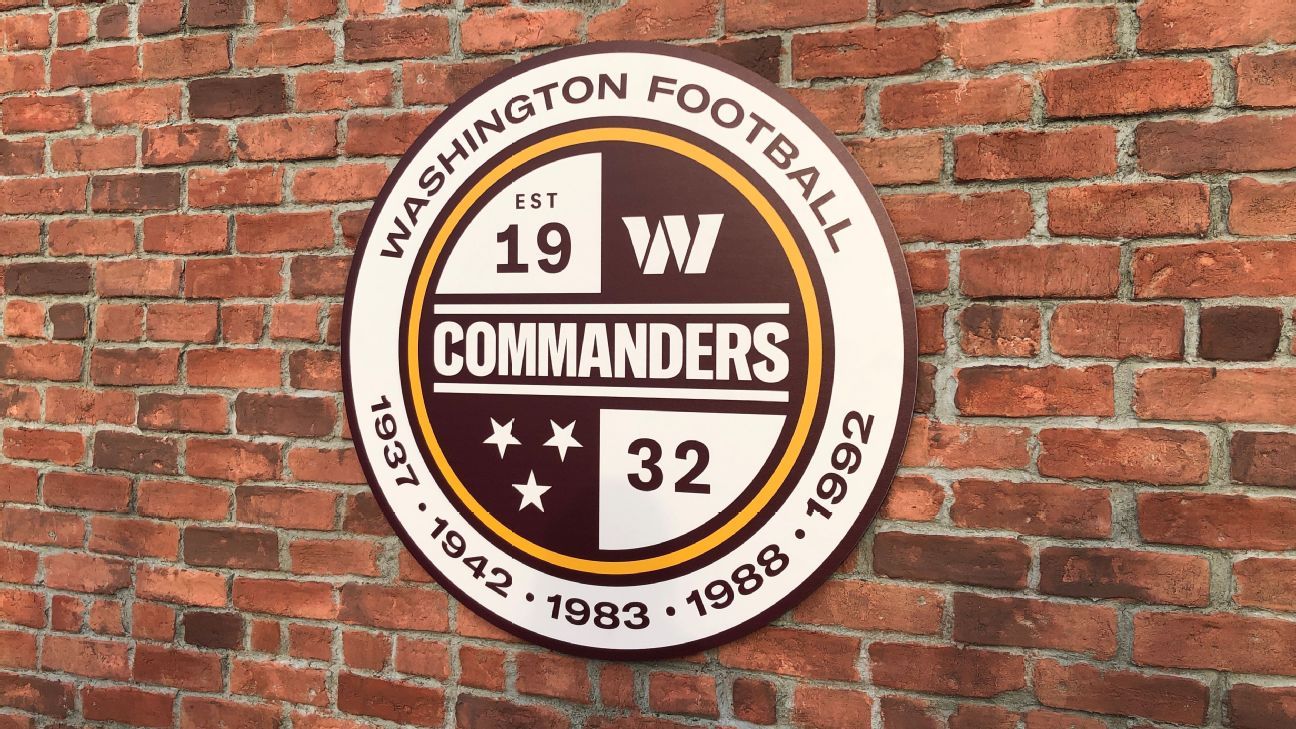The NFL in a letter to the House Oversight Committee on Wednesday blamed the Washington Commanders for blocking access to more than 100,000 documents related to the investigation into their workplace culture, a charge the team denied but one that highlighted a growing fissure between the two parties.
The letter, written by the NFL’s attorneys and sent to Rep. Carolyn Maloney of New York, the committee chairwoman, and Rep. Raja Krishnamoorthi of Illinois, came one week after new allegations of sexual harassment against Washington owner Dan Snyder came to light. That prompted calls for more investigations while appearing to divide the team and the NFL.
A committee spokesperson said in a statement that it had received the NFL’s letter but maintained that documents released last week show the NFL and the Commanders clearly entered into an agreement to pursue a “joint legal strategy” regarding the investigation.
“While the NFL and the Commanders continue to point fingers at each other, the fact remains that the NFL still has not turned over the findings of the Wilkinson investigation or the underlying documents to the Committee,” the statement read. “Until the NFL holds Mr. Snyder accountable and stops hiding the truth about the outrageous workplace conduct under his watch, the League’s claims about transparency and accountability will continue to ring hollow.”
The NFL’s letter was in response to a Feb. 4 letter sent by the oversight committee that asserted, among other things, that the NFL withdrew from a common interest agreement with the Commanders as “justification to avoid turning over key documents that the Committee is seeking.”
In Wednesday’s letter, the NFL stated that the league had sought to obtain 109,000 documents that are in possession of a third-party vendor the Wilkinson Stekloff firm had used during its investigation. However the vendor refused to provide the NFL or Wilkinson Stekloff with “access to the documents unless the team consented because of its concern that it could be sued by the team or its owner.”
According to the league’s letter, the NFL promptly asked Washington to provide its consent to the vendor, “but the team repeatedly has refused to do so.”
The team denied this allegation.
“The Commanders have never prevented the NFL from obtaining any non-privileged documents and will not do so in the future,” Snyder’s attorney, Jordan Siev, said in a statement.
The NFL also explained why it entered into a common interest agreement with Washington, saying it was to avoid delays in the investigation.
The team initially hired Beth Wilkinson on July 16, 2020, to conduct an investigation into its workplace. But the NFL took over the investigation “six weeks later,” according to the letter. Had it not entered into a common interest agreement, the attorneys asserted the NFL would have had to interview multiple witnesses again, making them go through the process another time while also delaying the outcome.
“The purpose and effect of the common interest agreement was to facilitate the NFL’s oversight of the investigation, absolutely not to constrain it,” the letter said. “Decisions related to the findings of the investigation have been made by the NFL, not the team, and any suggestion that the common interest agreement prohibited the release of the investigation’s findings without the team’s consent is categorically false.”
The letter also stated that the NFL feared if it waived the original common interest agreement that any third party could serve discovery requests seeking all of the confidential interviews.
The NFL also denied that it withdrew from the common interest agreement. According to the letter, the team asked the NFL to enter into a new common interest agreement with respect to the congressional investigation. The NFL declined, but the letter states that the team suggested this “amounted to withdrawal” from the original agreement. The NFL said that was not the case.
“This claim by the team should not be used as a pretext to block access to documents that were needed by the NFL to comply with the Committee’s requests,” it said in the letter. The NFL wrote that Washington made a revised proposal Monday, assuring the league “that their release of the documents would not result in any waiver of privilege by them.”
However, the league wants clarification from Washington. The letter said the NFL is willing to agree to either of the team’s proposed approaches if the committee wishes.
The letter also stated the league has “devoted considerable resources to obtaining, reviewing and producing approximately 80,000 pages of documents to date.” It said the league continues to review and produce documents to the committee, both orally and in writing.
“In no way is the NFL obstructing or seeking to obstruct the Committee’s investigation, and valid assertions of applicable privileges by the NFL should not be characterized as doing anything of the sort,” the NFL wrote.
The fact that Wilkinson delivered her report orally remains controversial. But the attorneys said in the letter that the NFL used written reports for previous investigations into the Carolina Panthers and the deflating of game balls, because they “did not involve the same confidentiality concerns presented here.”
And, the letter said, internal investigations often are delivered orally.
“It is simply not correct to suggest that submission of a written report is either necessary or the universal practice of other companies or the NFL,” the attorneys wrote. The letter referred to the investigation as “comprehensive” and that the league was provided regular updates.
The NFL’s attorneys also said the Commanders claimed in a letter to the committee that it had asserted privilege over “just four documents.” However, the NFL said it had actually asserted privilege over “several dozen additional documents,” bringing the total number in which it asserted privilege to 92.
Tisha Thompson contributed to this report.
